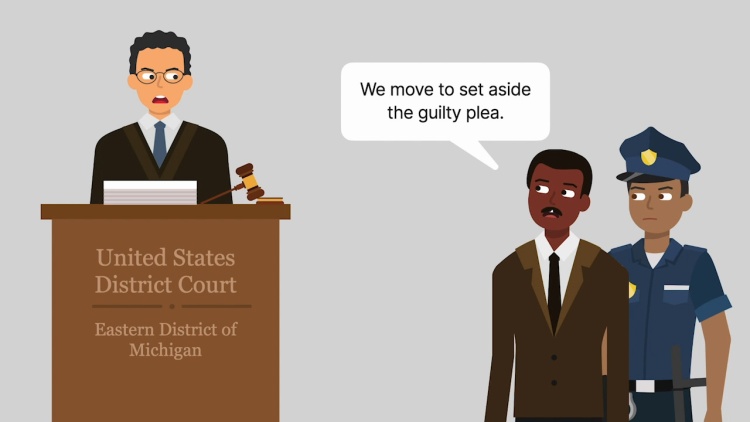Pollard v. United States
United States Court of Appeals for the Sixth Circuit
282 F.2d 450 (1960)
- Written by Samantha Arena, JD
Facts
In April 1956, while Marmion Pollard (defendant) was on police duty, his wife and daughter were murdered. Following the murders, Pollard became withdrawn, frequently overcome with depression, fatigue, and emotion; he also on numerous occasions threatened to commit suicide. While of a once happy disposition, after the murders Pollard was often expressionless. He began behaving erratically both at work and at home, even threatening his second wife with a gun. About two years after the murders, Pollard attempted to hold up three different banks on the same day and, about a week later, a grocery store. Pollard was eventually arrested and confessed to a total of seven attempted robberies. The United States government (plaintiff) charged Pollard with the crimes. Three psychiatrists, Drs. Milton Palmer, Alfred LaBine, and Herbert Raskin, subsequently examined Pollard Each agreed that at the time of the crimes Pollard suffered from a dissociated reaction and acted under a compulsion of an irresistible impulse. The doctors further agreed that Pollard suffered from severe depression and guilt in connection with the slaying of his wife and child and that he unconsciously hoped to be caught by authorities. Basing its conclusion on lay witnesses’ testimony and its own judgment, the district court determined that contrary to the doctors’ opinions, Pollard did not act under an irresistible impulse. Pollard was convicted, and he appealed.
Rule of Law
Issue
Holding and Reasoning (McAllister, C.J.)
What to do next…
Here's why 911,000 law students have relied on our case briefs:
- Written by law professors and practitioners, not other law students. 47,100 briefs, keyed to 997 casebooks. Top-notch customer support.
- The right amount of information, includes the facts, issues, rule of law, holding and reasoning, and any concurrences and dissents.
- Access in your classes, works on your mobile and tablet. Massive library of related video lessons and high quality multiple-choice questions.
- Easy to use, uniform format for every case brief. Written in plain English, not in legalese. Our briefs summarize and simplify; they don’t just repeat the court’s language.





